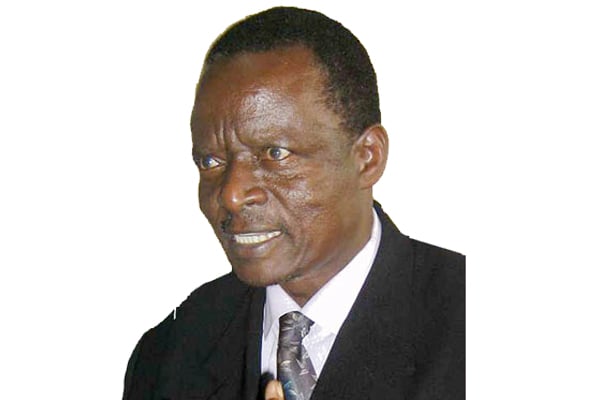Uganda’s federal demand is justifiably historical

Author: John Ken Lukyamuzi
What you need to know:
- If Uganda is to shine in the new confederation order of East Africa, it should reinstate its autonomous traditional regions into viable markets to begin feeding the Arusha market base along with Comesa.
I tend to concur with Owek. David F. K. Mpanga’s recent comment titled, ‘Federation shouldn’t be reduced to historical events’ in the Daily Monitor of March 17. He asserted that the federal principle adopted in Uganda at Independence in 1962, aimed at causing compromise among Uganda’s ethnic regions without necessarily losing grip with the country’s territorial integrity.
However, I don’t subscribe to the belief that the federal doctrine should be harnessed only as an historical factor of existence. Uganda is what it is today as a result of the federal doctrine under which the 15 regions and districts amicably agreed to found the Uganda Nation on the basis of a federal Constitution in 1962.
In simple terms, federalism denotes the politics of shared powers and sovereignty between the centre and the regions. It guarantees the protection of minority groups and its adoption is not dependent on size, otherwise Switzerland, small as it is in size, would not be ranked as one of the most successful federations on Earth. Above all, federalism is a system of governance capable of causing compromise where in normal times, compromise may be a nightmare. Federalism may not be the panacea, but its emergence is always attached to very strong reasons. It can evolve circumstantially and historically. Some federations develop on the basis of self-determination through economic empowerment, language, and minority freedoms.
Federal governance is still relevant in modern Uganda because it was the constitutional avenue through which Uganda was founded in 1962. Since the 1962 Federal Constitution was abrogated by Dr Milton Obote in 1966, the country has never located where it is supposed to belong in the search for peace and political stability. Uganda’s federal demand is justifiably historical and circumstantial. It is also a nation of many nations, with unique diverse cultures and traditions found nowhere else in Africa. The 15 regions and districts under which the Uganda Nation was founded in 1962, are still administratively functional in people’s minds. It is that peculiarity among many other historical features that makes the federal demand an irreproachable erga omnes” in Uganda and a justification for the right to self-determination.
The current budgetary expenditure for the Defence Sector and the Office of the President overwhelms every other item on the appropriation agenda in public finance. In the presence of checks and balances characterised by federalism, that would not happen because power would have space to check power. Mr Museveni is among the people who distort federalism to the extent of confusing it with monarchism. He forgets that federalism can amicably co-exist with monarchism as is the case today in Malaysia whose hybrid federal model accommodates five kingdoms along with nine unitary provinces. I hope the President is aware that the target for forming the East African federation has long collapsed. The Heads of State in the East African Community now prefer moving towards a confederation other than a federation.
If Uganda is to shine in the new confederation order of East Africa, it should reinstate its autonomous traditional regions into viable markets to begin feeding the Arusha market base along with Comesa. The districts shall remain administratively functional to service regional markets towards economic integration in the East African Confederation.
The 11th Parliament should, therefore, invoke the contents of Article 178 of the Constitution to seek to declare the existence of the Federation of Uganda beyond what is merely deemed to be the regional governments in Buganda, Bunyoro, Busoga, Acholi and Lango. The existence of ministers in charge of regions like northern Uganda, Karamoja, Teso and Bunyoro, is a demonstration that regional governance is a panacea in Uganda.
Article 45 of the 1995 Constitution is more or less redundant. That Constitutional provision merely excites the people by referring to human rights and freedom which exists without documentation and among those is the right to self-determination embedded in the International Covenant on people’s political social and economic rights that Uganda has long signed. That right should be part of the 1995 Constitution because it is the provision which guarantees the right to self-determination which is synonymous with federalism.
Mr Lukyamuzi is the president conservative party and author of a book on Uganda,
A Creature Of The Federal Doctrine .




